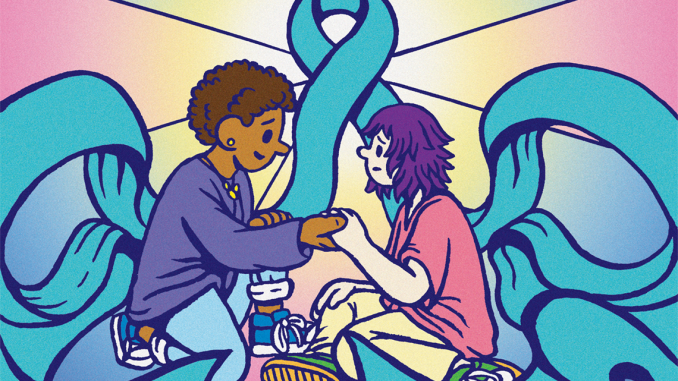
Content warning: This article discusses topics around sexual assault that may be triggering for some readers.
———-
For weeks during my junior year of high school, a boy I thought was my friend incessantly asked to drive me home. He texted me, or found me after school and asked to drive me home or hang out. He looked for any excuse to get us alone.
Throughout the first few months of junior year, we became close friends. We were in the same student clubs, and would attend the football games together to fundraise for events.
He made sexual comments here and there, but I didn’t think anything of it.The more I saw him, the more I felt uneasy when I was alone around him. I had this feeling in my gut that, given the opportunity, he would do something but didn’t know what.
I brushed it off until I needed a ride to the grocery store to buy my father’s birthday card. He was supposed to take me home right after, but he didn’t.
He told me to trust him, but something inside me wasn’t at peace. My heart was beating faster than normal, I couldn’t catch a breath. A wave of nausea hit me, I was frozen. My hands were sweaty and cold, my brain went blank and I couldn’t speak.
After trying to prevent what I knew was going to happen, I gave up. My eyes stayed unfocused on the horizon as I laid in the back of his car.
For months, I believed I was to blame for what happened, I thought it was my fault and I could’ve prevented it. Maybe if I did something differently, the outcome would’ve been better.
That feeling stayed with me for months; I became a shell of myself. I second-guessed all interactions and pulled away from friendships. My mind retreated into itself and my body felt dirty.
I felt like a liar and told myself it wasn’t a big deal and I was being dramatic. But I knew if it wasn’t real, I wouldn’t feel a crushing sense of fear everywhere I went.
There was an overwhelming sense of anxiety, walking through the halls, going to work and being out in public. I couldn’t rest, I was always tense and on high alert.
It was tiresome, always looking over my shoulder, wondering if he was coming back. I couldn’t keep living like this; I needed to do something about it.
A month and a half after what happened, I pressed charges. I felt an obligation to my younger sisters, and every girl at school because maybe if there were consequences, I could save girls in the future.
I was hesitant at first, afraid to relive what happened and for my story to be picked apart, but I needed to take my power back.
The draining legal battle lasted nine months, but nothing came out of it. I was left with the invasion of my privacy, but he was seemingly untouched. He could live the rest of his life without thinking about what he did.
When a person is violated, it can be easy to see them as the problem. But they’re not, the person who violated their consent is the problem.
I endured heartache and self-reflection before being able to come to terms with what happened. I learned how to trust again, rely on close friends and family and ask for help.
My family showed me what a healthy relationship was, how to be strong and stand up for myself. My friends helped me see that what happened to me doesn’t define me.
I now know how to remove myself from unhealthy situations and communicate my boundaries. I’ve reached a point where I’m confident and comfortable in myself.
I’m able to take everything I’ve been through and use it for good. I’ve learned to speak up and draw attention to problems and I’m able to remove myself from environments without feeling guilty or worried. I now put my well-being and safety first.
I know now that I wasn’t the problem. I am more than what he did to me.
———-
Survivors of sexual assault should feel supported in their need or desire to report incidents of sexual misconduct or speak to professionals for emotional support. Resources include the Tuttleman Counseling Center, the Philadelphia Center for Sexual Violence, the Title IX office, the Office of Student Conduct and Community Standards and Student Health Services.



Be the first to comment